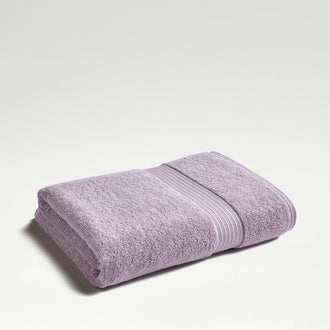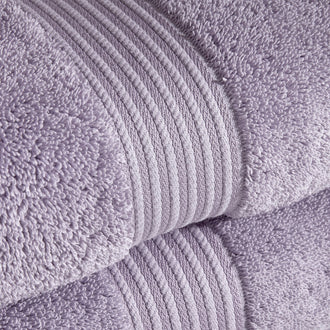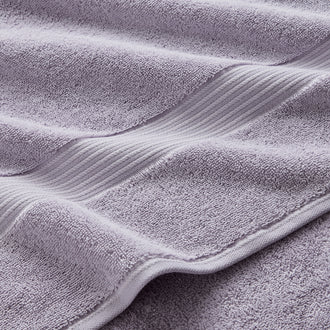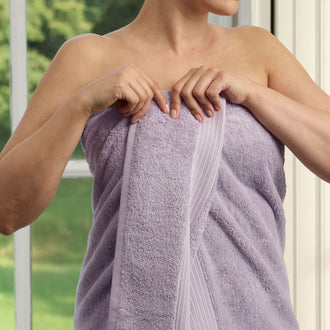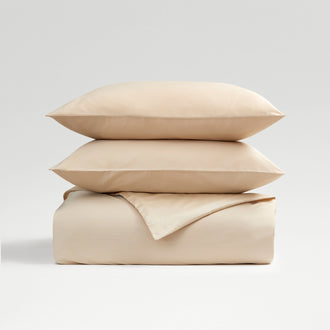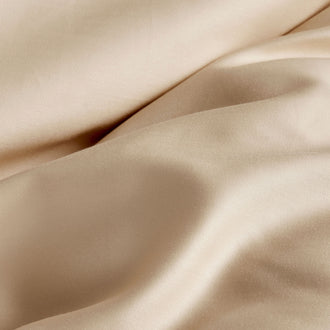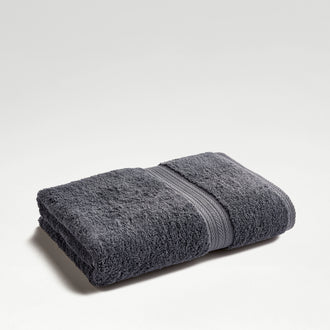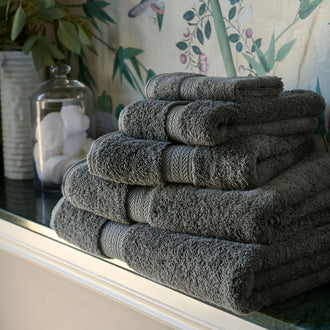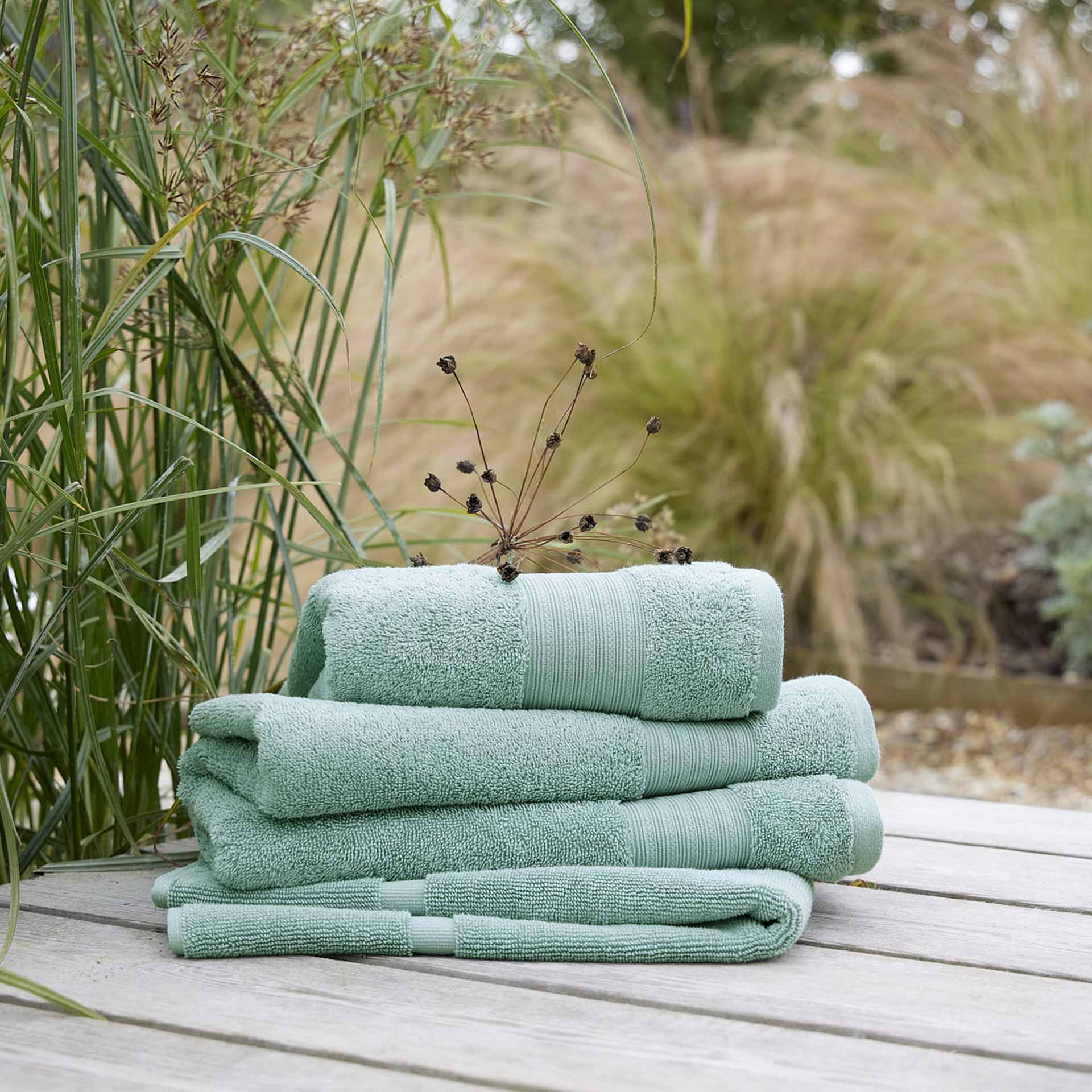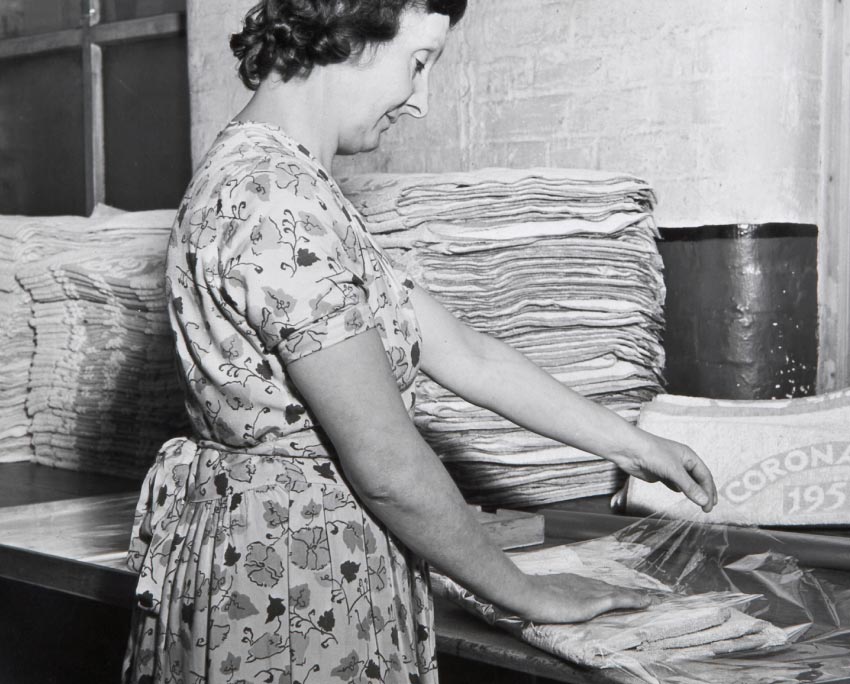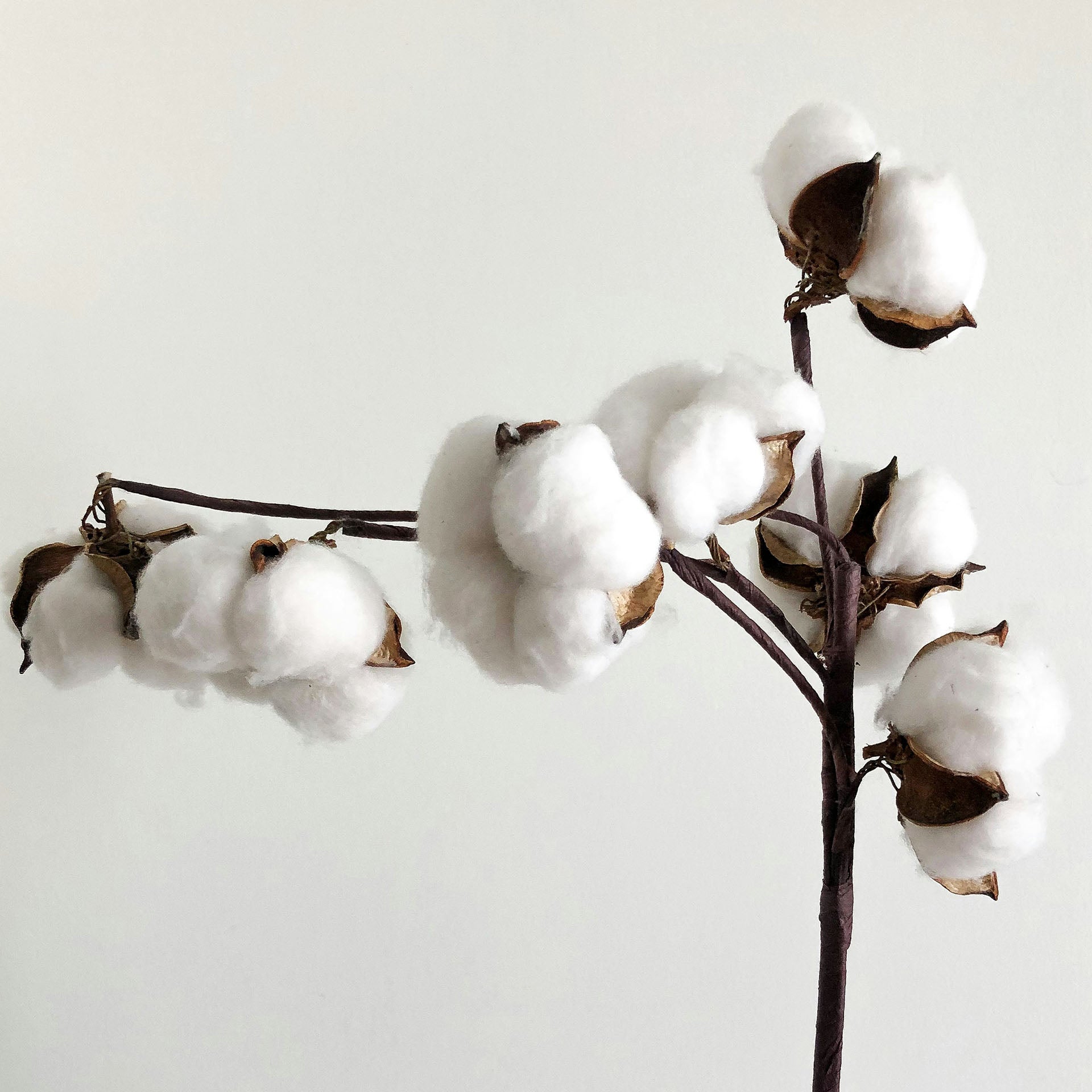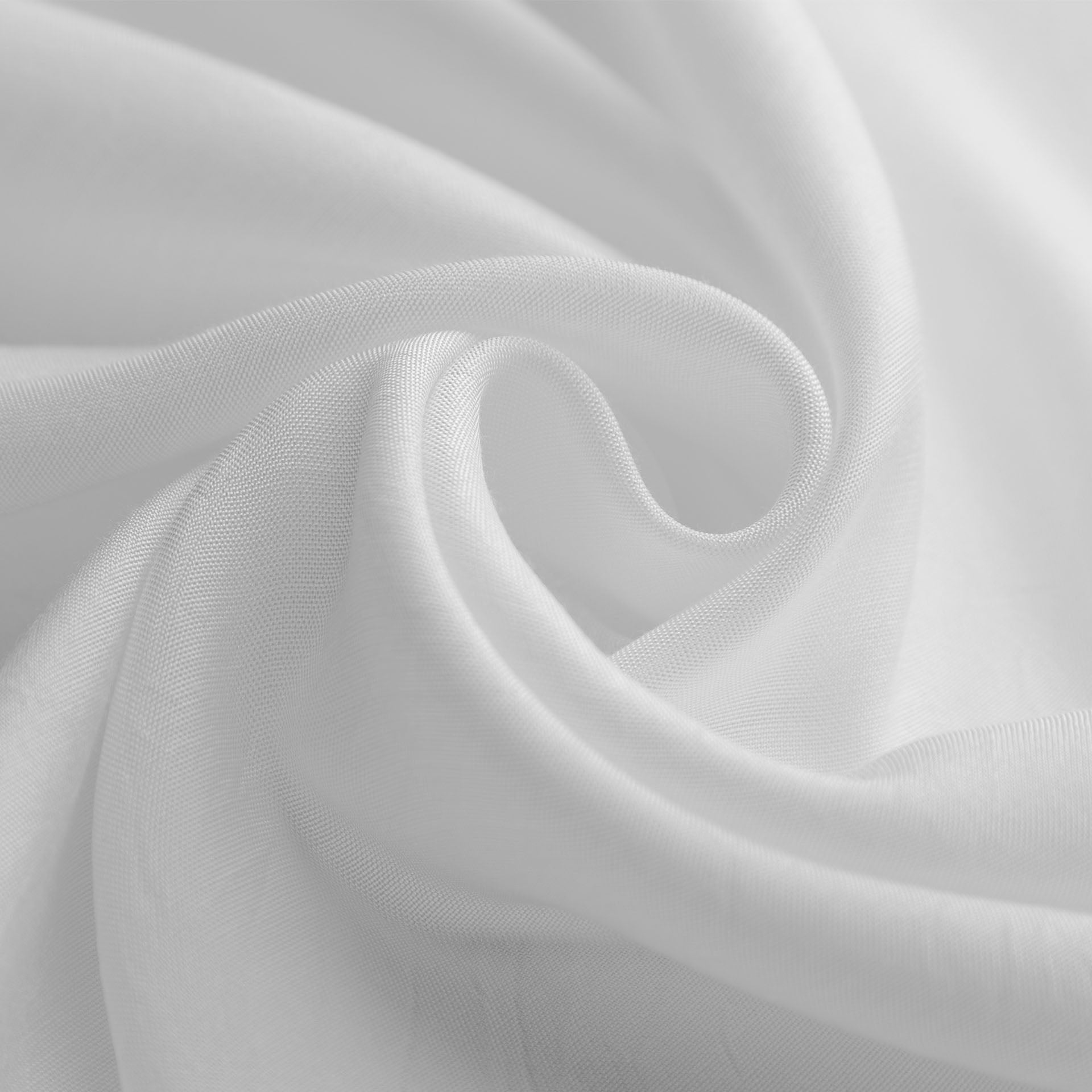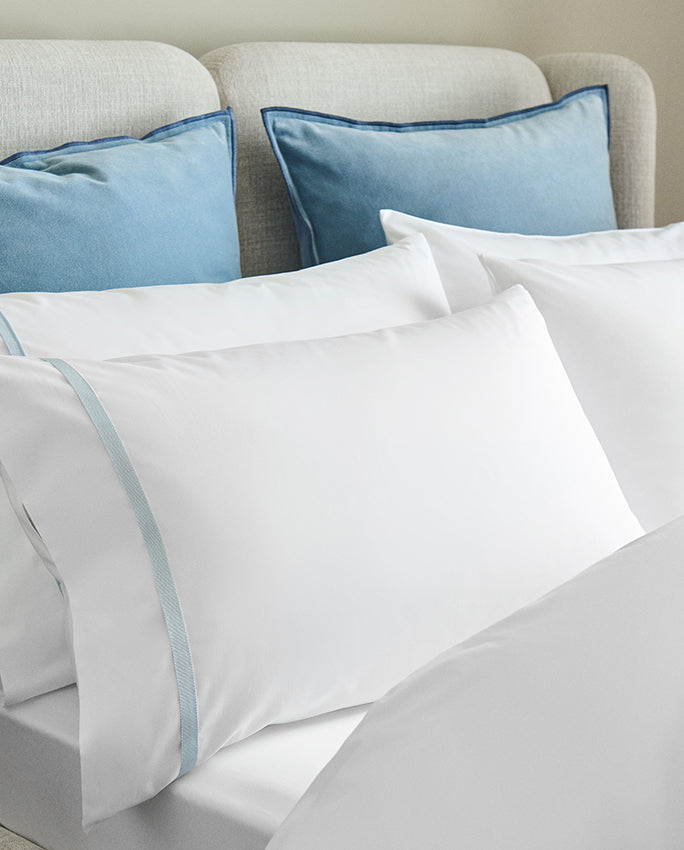lifestyle
Should You Wash New Bedding When You Get It?
Bringing home new bedding is one of the simple joys in life - the promise of fresh, crisp sheets and a guaranteed good night’s sleep. But before you dive into your new, pristine duvet cover, a question arises: ‘Should you wash new bedding before use?’
At Christy, we pride ourselves on crafting luxury bedding that brings both quality and comfort to your home. From the softest cottons to the most luxurious weaves, each piece is designed with your well-being in mind. But even with our meticulous standards, there is one step that you shouldn’t skip when welcoming new bedding into your home - washing it.
Let’s explore why this simple act can make all the difference…
Should you wash new bedding before use?
Yes, experts from Christy would recommend washing your new bedding before use. While it is not a necessity, it is wise to do so to ensure that your sheets are as clean as they can be. But why?
Bedding, just like other manufactured products, is produced in factories and other locations where the air is likely to be dusty. Dyes are used in the manufacturing process, which can sometimes cause mild irritation for those who suffer from allergies or who have sensitive skin, despite being washed before sale.
Then, your sheets go through handling. Throughout the entire manufacturing, packing, and processing stages of development, probably dozens of people, if not more, may have handled your brand-new sheets. Just like you probably wouldn’t pick an apple up from the supermarket and eat it without washing it, you should wash your bed sheets before putting them straight onto your bed.
Washing new sheets also gets rid of those lines and wrinkles that may appear during the packaging process, so washing them makes them look smoother as well as smell fresher and cleaner.
Benefits of washing new bedding
As well as getting rid of potential manhandling, following the recommended advice and washing your bedding offers several important benefits for your health, comfort, and the longevity of the bedding itself. These include:
-
Eliminated dust and debris - From each stage of your bedding manufacturing process, it can accumulate dust, dirt, lint, and other environmental debris, so washing ensures a clean surface against your skin.
-
Removes potential allergens - New bedding might harbour allergens such as dust mites or pollens. Washing creates a more hypoallergenic sleep environment, which is especially important for those with allergies or sensitivities.
-
Gets rid of germs - While new bedding is technically unused, it has probably been handled by multiple people and machines in potentially dusty environments.
-
Softens the fabric - Many new duvet sets have a stiff or crisp feel due to sizing agents used to prevent wrinkles in packaging. Washing, therefore, makes your bedding softer and more comfortable to sleep on from the first night.
-
Sets a good hygiene habit - Washing your new bedding can immediately reinforce the importance of regular bedding hygiene and encourage a healthier sleep environment.
How to wash your new bedding
Your sheets might not always feel their best straight out of their packaging, but don’t worry. It’s no reflection on the quality of the duvet covers or sheets that you have just purchased. It just means that they have been through a lot to get to your home during the manufacturing stage.
Whether you’ve got luxury bed linen, white sheets, or cotton sheets, the instructions below will work wonders and ensure that you get beautifully clean sheets after each wash.
1. Pre wash
Taking a few extra steps before chucking your sheets straight into the washing machine can help to ensure that they stay vibrant, soft, and last longer. First things first, always read the care label of your bedding. This will provide specific guidance on water temperature, detergent type, and drying methods. Then, separate by colour. This will prevent dye transfer, especially during the first few washes when excess dye is likely to be released.
For very vibrant or deeply coloured sheets, some people may choose to do a cold water soak for 30 minutes. Others add 250 ml of baking soda to the washing machine at the start of the first wash, and once the bed sheets start to rinse, add a further 250 ml of vinegar. However, this should only be done for the first wash or an occasional refresh - apart from this, they should be washed as usual.
2. Washing your sheets
When it comes to actually washing your sheets, ensure that there is plenty of space in the washing machine. Ideally, your new duvet and pillow cases should be washed free from other laundry. Overcrowding could mean that your sheets won’t always be perfectly cleaned.
In regard to temperature, warm water is always best. However, water that is too warm can drain fabrics of colour, as well as break down fine threads. If cold water is used, your bedsheets are unlikely to get as clean as you might like. That’s why it’s always best to opt for warmth. Choose a gentle detergent that is designed to be colour safe, without optical brighteners, and use less detergent than usual. Since your new sheets aren’t actually dirty from use, you don’t need to use a full scoop or cap - we recommend just using about half.
3. Drying your sheets
The drying process is just as important as washing when it comes to new sheets. The secret to keeping your sheets smooth and soft is to ensure that they are taken out of your washing machine as soon as the cycle is complete. This will avoid wrinkling and will prevent mould from being produced, which can lead to nasty smells.
Unless the care label specifically allows for higher heat, we recommend opting for the lowest heat setting on your dryer, or, even better, air drying your new sheets. High heat can cause shrinkage, damage the fibres (especially natural fibres like cotton and linen), and even fade colours. Air drying is therefore the gentlest method and is highly recommended for preserving the quality and longevity of your bedding.
How often should you wash your bed sheets?
You’ve done the first initial wash, but remember, frequent washing and care for your bedding is essential for good hygiene. According to our experts here at Christy, you should wash your bedding every one to two weeks. Sheets and bedding that aren’t washed regularly can start to smell and may even become a hotspot for allergens and bacteria that can trigger asthma, skin breakouts, and other reactions.
You may need to wash your sheets more often if you sweat heavily, have allergies or sensitivities, or eat and drink in bed. You might also want to wash your bedding more frequently when you are sick.
You can invest in mattress protectors and toppers to add an extra layer of protection between your mattress and your bed sheets.
Upgrade your bedding collection with Christy
Hopefully, this blog has answered your question: ‘Do you need to wash new bedding?’ The answer is a resounding yes - to ensure that you’re diving into fresh, clean sheets, washing your bedding before use is highly recommended.
If you have any more questions or enquiries, please don’t hesitate to get in touch. A member of our expert team will be more than happy to get back to you. Throughout our 175-year history, we’ve put dedication and careful craftsmanship into every stitch - join our loyal customer base and discover ultimate luxury for yourself.
Frequently asked questions:
Why should you wash new bedding?
Washing new bedding before use is recommended to remove chemicals, dust, and debris that may have accumulated during manufacturing, shipping, and packaging, ensuring a cleaner, more comfortable, and hygienic sleep environment, especially for those with sensitive skin or allergies.
Can I sleep on unwashed sheets?
While yes, you can technically sleep on unwashed sheets, it’s not recommended. Your sheets can gather dirt, dust mites, sweat, dead skin cells, and bacteria, leading to potential health issues like skin irritation, allergies, and even infections. Even new sheets should be washed before use.
How long can you go without washing bedding?
For a healthy sleep environment, experts generally recommend washing your bedding, including sheets, pillowcases, and duvet covers, at least once a week, or every two weeks at most. You shouldn’t leave washing any later than this - not washing your sheets regularly can lead to all sorts of issues for your skin, the quality of your sleep, and even your immune system.

